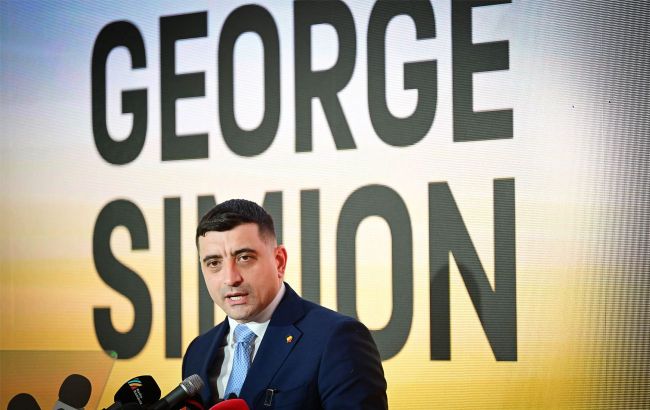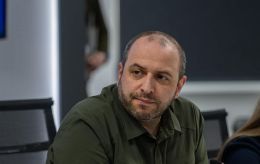Pro-Russian radical eyes power in Romanian presidential race
 Far-right Romanian presidential candidate George Simion (photo: Getty Images)
Far-right Romanian presidential candidate George Simion (photo: Getty Images)
Today, May 4, Romania will hold the first round of its presidential election, following a scandal-ridden campaign marked by Russian interference, candidate withdrawals, and a surge in support for far-right parties.
RBC-Ukraine provides an overview of the main candidates, their chances, and their stance on Ukraine.
Takeaways
- Why were repeat presidential elections held in Romania?
- Who are the main candidates, and what do they say about Ukraine?
- Does the pro-Russian radical have a chance to win?
Elections on the second attempt
This is the second attempt in a few months to elect the president of Romania. The results of the previous vote, held on November 24 of last year, were annulled by the Constitutional Court. At that time, the unexpected frontrunner was far-right pro-Russian candidate Călin Georgescu.
However, the Romanian Constitutional Court annulled the election results, citing a report from the intelligence services. According to the report, Georgescu's campaign had violated rules by using illegal advertising and manipulations on TikTok to artificially boost his popularity. The report also mentioned Russian hybrid attacks, including cyberattacks and sabotage. As a result of this campaign, Georgescu's rating increased from 6.2% two weeks before the election to 22.94% in the final results.
On February 28, Georgescu was arrested and suspended from the repeat first round of elections. However, another far-right candidate replaced him.
Who is running for president?
According to polling aggregator EuropeElects.eu, the leader of the "Alliance for the Unity of Romanians" (AUR), George Simion, holds the top spot with 29%. He managed to attract the supporters of Călin Georgescu after his disqualification. Simeon holds nationalist and Eurosceptic views and is openly sympathetic to Putin. He actively advocates for the reunification of Romania and Moldova. Simeon criticizes Romania’s mainstream politicians, accusing them of corruption and dictatorship. He positions himself as a defender of "the people" against the "globalist elite" and external influence. Additionally, he has voiced the idea of claiming Chernivtsi and Bessarabia from Ukraine and has been declared a persona non grata in both Ukraine and Moldova.
In second place ahead of the elections, with 22% support, are Crin Antonescu and Nicușor Dan. Antonescu is the "single candidate" from the parties forming the parliamentary coalition: the Social Democratic Party, the National Liberal Party, and the Democratic Union of Hungarians in Romania. He holds liberal and pro-European views and supports Ukraine. However, his chances are weakened by dissatisfaction with the government among a significant portion of the population seeking change. He also lacks a charismatic public persona.
Dan is running as an independent candidate and is currently the mayor of Bucharest. Regarding Ukraine, he has stated the need for continued support. Dan has a reputation as a politician fighting corruption and inefficient governance. Additionally, he can already demonstrate success in his role as mayor, particularly in modernizing Bucharest in terms of infrastructure and transparency in budgetary spending. However, his support is weak in rural areas and smaller cities.
Furthermore, he lacks a party structure that could mobilize voters on a national level. Dan also avoids populist rhetoric, making him less appealing to the protest electorate, which tends to favor Simeon.
Opposition candidates Viktor Ponta and Elena Lasconi are also garnering notable support, with 12% and 7%, respectively. While they have little chance of winning, their votes could play a significant role in the second round of the election.
What to expect in the second round
None of the candidates have enough support to win outright in the first round of the election. Therefore, it is highly likely that Simion will make it to the second round, along with either Antonescu or Dan. According to second-round modeling from the MKO agency, Simeon loses to Antonescu — 33% against 31% — and to Dan — 35% against 31%.
In the second round, the majority of voters stated they would support any pro-European candidate to prevent a radical from gaining power. However, voter turnout could influence the outcome. Simeon’s supporters are highly motivated to vote, and the "fear of the radical" sentiment will also encourage some moderate pro-European voters to go to the polls.
However, there may be nuances, considering the weaknesses of both Antonescu and Dan. Moreover, it is unclear to what extent Romania’s intelligence services have managed to neutralize Russian interference in the election, which aided the radical candidate during last year's vote.
For more details on the developments surrounding Romania's presidential elections, read the full article by RBC-Ukraine.
Sources: sociological data from the EuropeElects.eu portal, MKO agency, and public statements by Romanian politicians.

